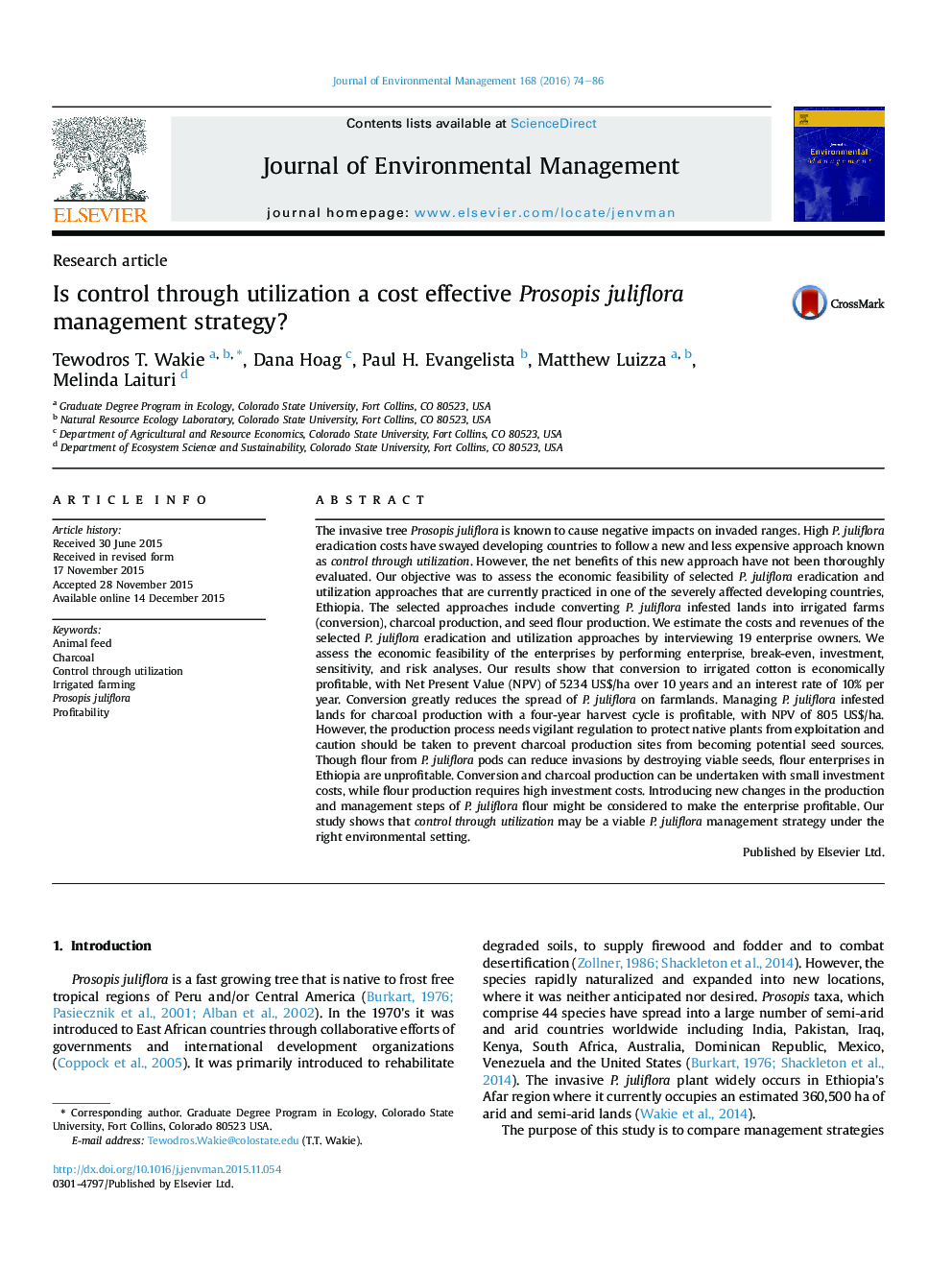| Article ID | Journal | Published Year | Pages | File Type |
|---|---|---|---|---|
| 1055546 | Journal of Environmental Management | 2016 | 13 Pages |
•Conversion is an effective Prosopis juliflora eradication approach that is profitable.•Charcoal production is a utilization method that is less profitable and less risky.•Flour production from P. juliflora seeds is a risky and unprofitable utilization approach.•Controlling invasive tree species through utilization can be an effective management tool.
The invasive tree Prosopis juliflora is known to cause negative impacts on invaded ranges. High P. juliflora eradication costs have swayed developing countries to follow a new and less expensive approach known as control through utilization. However, the net benefits of this new approach have not been thoroughly evaluated. Our objective was to assess the economic feasibility of selected P. juliflora eradication and utilization approaches that are currently practiced in one of the severely affected developing countries, Ethiopia. The selected approaches include converting P. juliflora infested lands into irrigated farms (conversion), charcoal production, and seed flour production. We estimate the costs and revenues of the selected P. juliflora eradication and utilization approaches by interviewing 19 enterprise owners. We assess the economic feasibility of the enterprises by performing enterprise, break-even, investment, sensitivity, and risk analyses. Our results show that conversion to irrigated cotton is economically profitable, with Net Present Value (NPV) of 5234 US$/ha over 10 years and an interest rate of 10% per year. Conversion greatly reduces the spread of P. juliflora on farmlands. Managing P. juliflora infested lands for charcoal production with a four-year harvest cycle is profitable, with NPV of 805 US$/ha. However, the production process needs vigilant regulation to protect native plants from exploitation and caution should be taken to prevent charcoal production sites from becoming potential seed sources. Though flour from P. juliflora pods can reduce invasions by destroying viable seeds, flour enterprises in Ethiopia are unprofitable. Conversion and charcoal production can be undertaken with small investment costs, while flour production requires high investment costs. Introducing new changes in the production and management steps of P. juliflora flour might be considered to make the enterprise profitable. Our study shows that control through utilization may be a viable P. juliflora management strategy under the right environmental setting.
